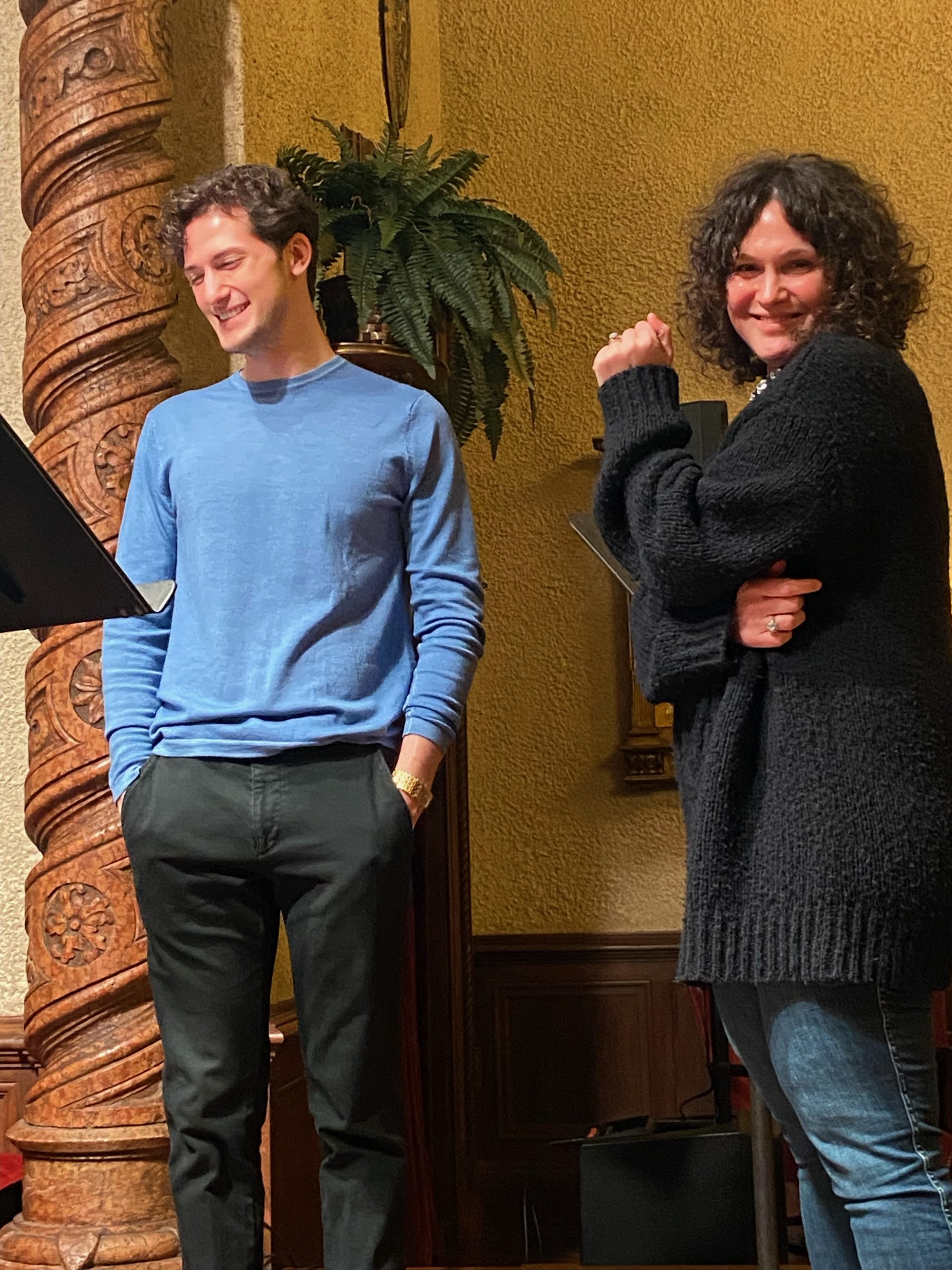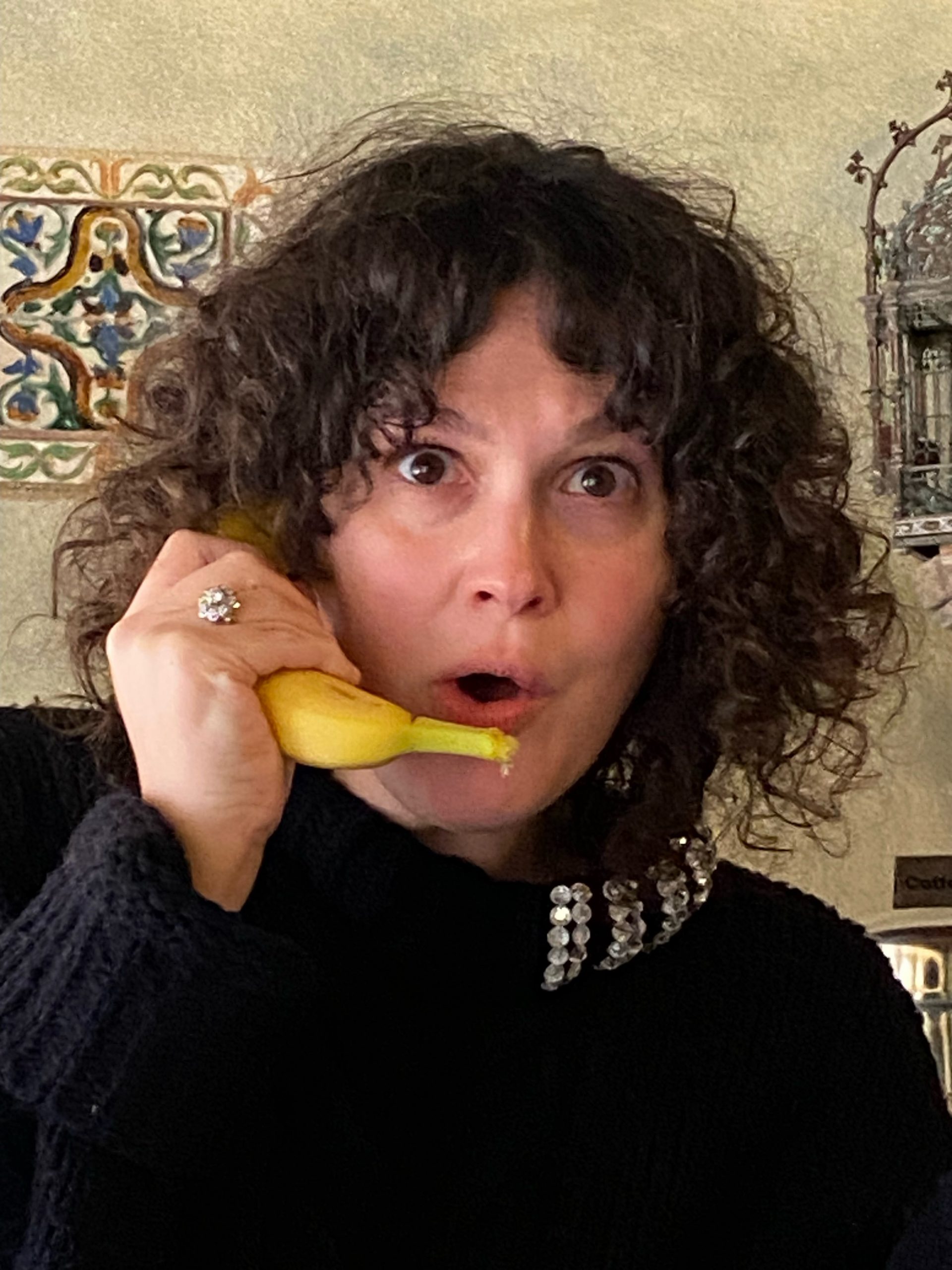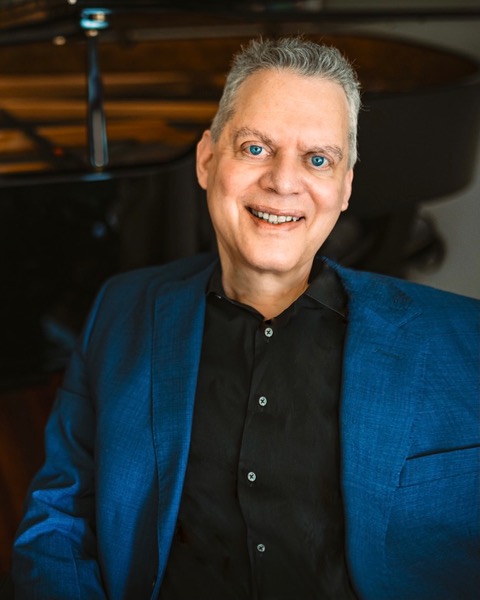—Shelén, mezzo-soprano Maggie Reneé, and pianist Yihao Zhou were doing decently well with a Granados duet, but Béné and I both felt it lacked spice—a paëlla that needed saffron. We both went to work on it. Béné diagnosed it as a problem of rhythm, and of musical energy that flagged before the phrase was over. She was correct in her diagnosis, and the piece started to sizzle a bit. But the two women still sounded a bit too serious. I sprang into action. “You know what you need? The umlaut of superiority,” I told them. “WHAT?” I couldn’t explain it in words—it’s something I’ve heard in the classic recordings of Spanish song by Victoria de los Ángeles and Montserrat Caballé, a vowel nuance that instantly conveys a kind of self-satisfied, feline flirtatiousness. The only way to get them to do it was to sing it to them—“cerca nacida de la Moncloa o la Florida,’ I cooed—except when I sang the last word, it came out more like “Flo-rü-da,” to which I added a sly little portamento. Before their very eyes I had become a stuck-up 19-year old chica boasting about her slender feet. And soon, Shelén and Maggie also sounded like stuck-up Spanish teenagers—except, of course, they also looked like stuck-up Spanish teenagers!




I’m reveling in the return of these blog posts! I can’t wait to see the show in the city ❤️❤️
Steve,
It was exciting to read days 1 and 2 together. I feel like I’m there with you and these amazing musicians as they learn and teach each other. I’m envious of your time together and can’t wait to hear the concert next week. I hope the whole audience takes advantage of being part of the process as well of being lucky enough to hear the product!